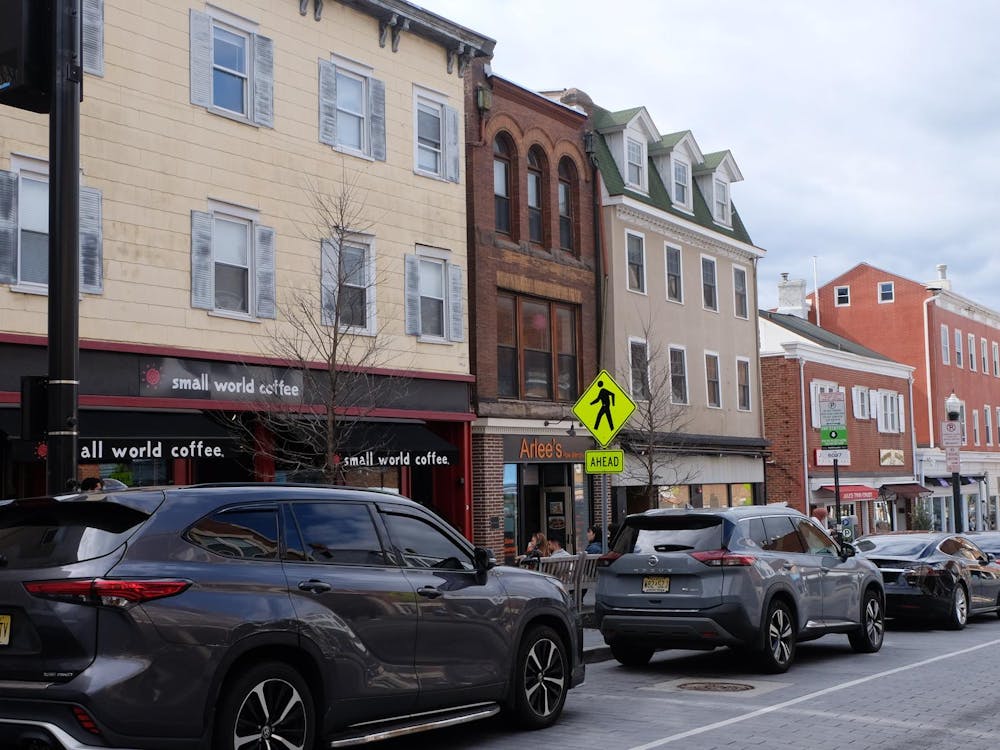Princeton represents the scientific and intellectual vanguard of our society, and it needs to act like it by demonstrating an awareness and care for student needs. When the University prioritizes performance metrics over students’ well-being, trust in the institution’s commitment to mental health is eroded. If we feel like Princeton is an aggravator of our conditions, why would we look to it for help? This is the reality: Princeton does not adequately show students that it cares about our mental health. Therefore, we are less likely to seek help when we need it, which may create or exacerbate existing mental health issues.
Every time a tragedy happens, Counseling and Psychological Services (CPS) offers the same support and sends around the same links to online resources. Following the losses of Misrach Ewunetie ’24 and graduate student Maura Coursey, the same message reached all students’ inboxes: “[CPS] is available 24/7 if you need support. Please feel free to schedule an appointment online through myUHS portal, or call 609-258-3141 if you would like to speak with a counselor immediately.”
Students are tired of receiving the same links and emails every time a tragedy happens. Clearly, these resources are not helping, as the tragedies continue to occur. As they persist, students are losing faith in the school’s ability to take care of our mental well-being.
As the ‘Prince’ reported in 2021, students have made the extent of their mental health struggles clear — on social media, in asking for extensions and support from professors, and in print. Within the ‘Prince’ opinion section, students have written about burnout, asked for the University to roll back expectations of students, called on CPS to expand appointments and proactively reach out to students. This semester, students have urged extensions for exams and junior independent work.
A big part of that distrust is the University’s focus on academics. The relentless pressure to excel and achieve impressive results can cause considerable anxiety and distress for students. The notion that college life should involve constant stress, sleepless nights, and relentless work is deeply flawed. Princeton’s strong emphasis on academic achievement and professional success has created a high-pressure environment in which mental health is overlooked. We need to move away from the idea that success requires constant stress and sacrifice, and instead promote a more holistic and balanced approach to life. This can involve recognizing the value of rest, relaxation, and self-care in promoting mental wellness and academic success.
Reducing academic pressure can serve a greater goal, to reduce stigma around mental health. Despite the growing global awareness about mental health, the stigma against admitting struggles and difficulties still persists both on and off campus. When Princeton does not actively work to destigmatize mental health issues and promote a supportive environment, students may feel like their concerns are not being taken seriously. Stigmatization of mental health on college campuses can further affect students’ ability to seek help and support.
According to a recent article in the Journal of American College Health, equipping college counseling centers with knowledge and strategies to decrease actual and perceived levels of stigma on campus may be a major key to promoting student help-seeking. Knowing that perceived stigma is the greatest reason why college students do not seek counseling supports a case to seek strategies to reduce such levels of perceived stigma, in an effort to increase help-seeking behaviors.
It’s clear that decreasing stigma works, and considering the demonstrated prevalence of mental health issues on campus, it is Princeton’s responsibility to create a supportive and inclusive environment that promotes mental wellness, as well as listen to the voices of its students and respond to their needs. This can involve providing resources and support for mental health challenges that are reflective of campus realities. The University should expand counseling services, offer accommodations for exams and assignments, and reduce academic pressure. It should also address the root causes of mental health difficulties, such as social isolation or even financial stress.

Students have a role to play as well: We must continue to push the University to improve by engaging in open discussions and reflection on mental health challenges within the campus community. By confronting the toxic culture of productivity and demanding change, we can work towards a more supportive and compassionate environment in higher education. It is not enough to just provide resources for mental health; Princeton must become a space where students feel empowered to take advantage of support. Accessible and comprehensive mental health care can only be developed alongside a student body that trusts its administration. Only then can Princeton make a lasting change in the lives of students struggling in silence.
Maria Luisa Vieira Parada is a member of the Class of 2026. She can be reached at mparada@princeton.edu.









